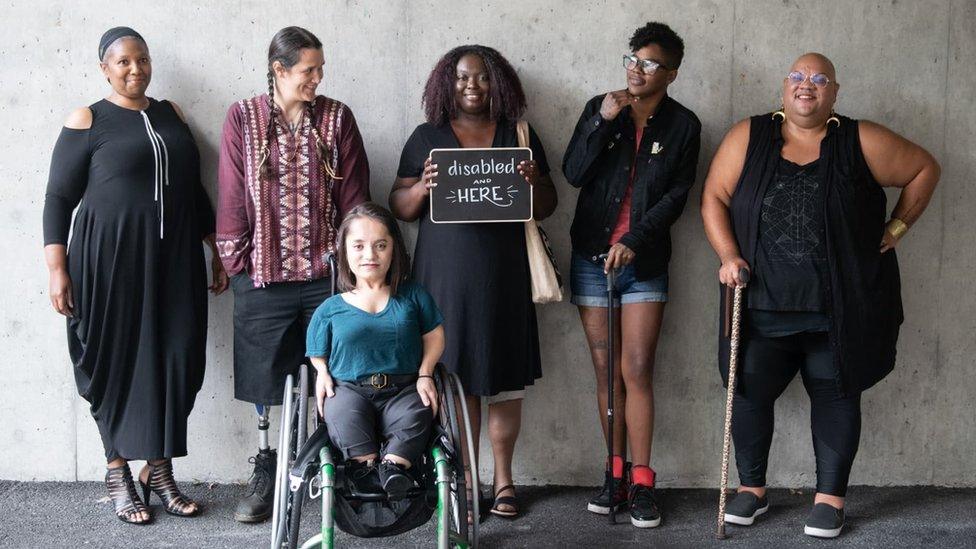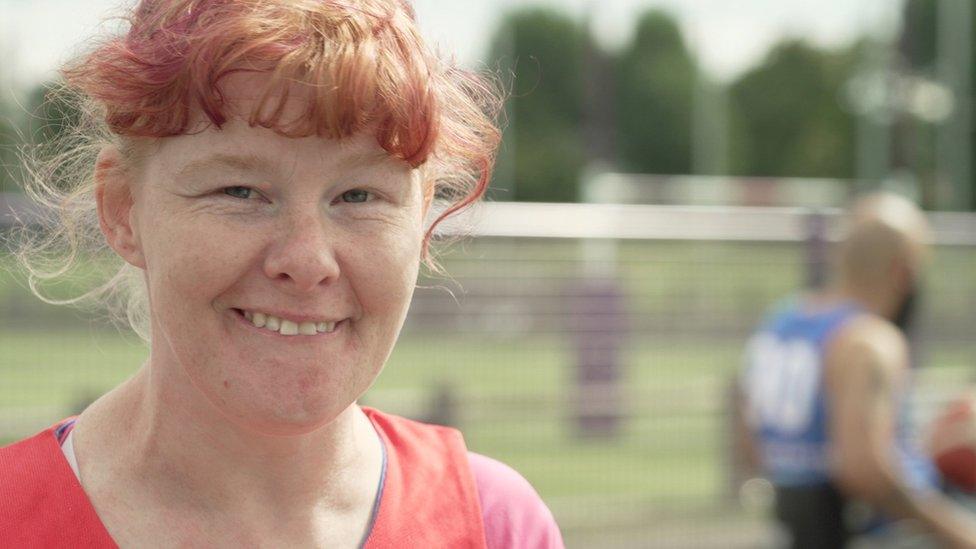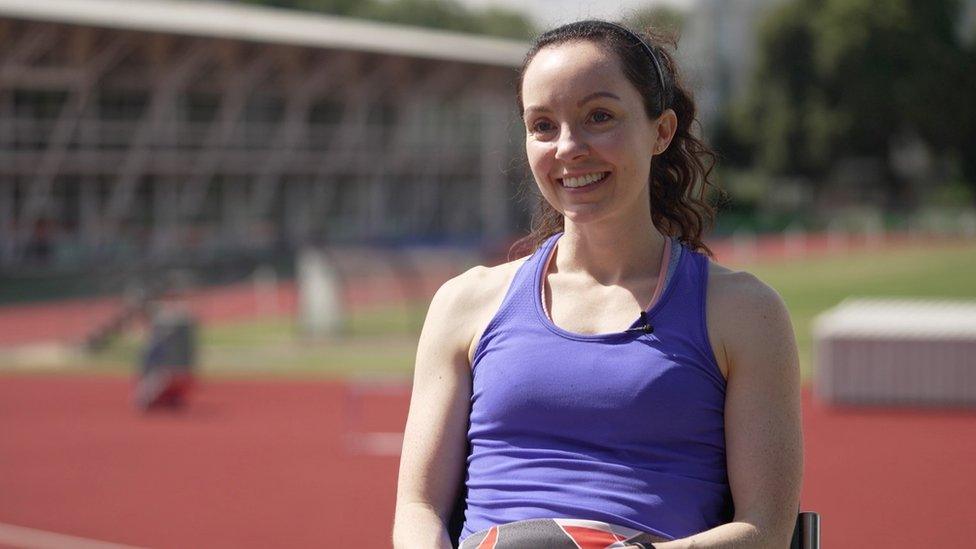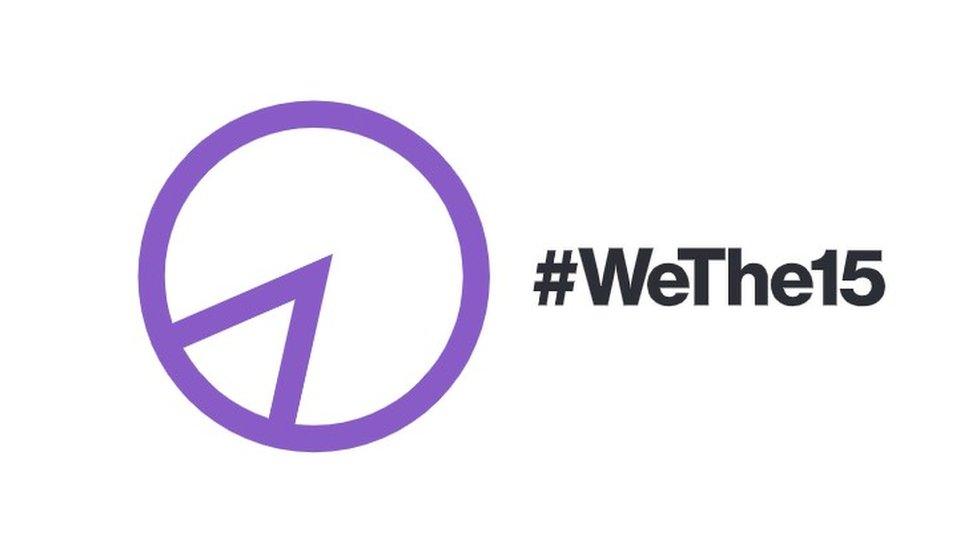WeThe15: 'Game-changer' plan for 1.2bn disabled people (original) (raw)
 Image source, Disabled and Here
Image source, Disabled and Here
A global campaign described as a "game-changer" has been launched to improve the lives of more than one billion disabled people by 2030.
WeThe15 wants to improve inclusion, raise awareness and end discrimination of disabled people around the world.
It brings together a coalition of organisations from the International Paralympic Committee (IPC) to Unesco.
The launch comes ahead of the delayed Tokyo 2020 Paralympic Games which begin on 24 August.
Using the event as a springboard, the IPC and International Disability Alliance has joined forces with arts, business and human rights organisations including UN Human Rights and The Valuable 500 to "raise awareness, change attitudes and create more opportunities" for disabled people.
The campaign has been set-up to represent the 15% of the world's population that is disabled - about 1.2bn people, according to the World Health Organization.
'Awareness needs to grow'
As part of it, the IPC, Special Olympics, Invictus Games and International Committee of Sports for the Deaf will collaborate for the first time to ensure there will be a major sport event - and platform for the campaign - every year until 2030.
On Thursday, for the launch, 125 landmarks will turn purple - the internationally recognised colour of disability - from New York's Empire State Building to Moscow's Ostankino Tower and the London Eye.
President of the IPC, Andrew Parsons, said: "[The project] aims to put disability right at the heart of the inclusion agenda, alongside ethnicity, gender and sexual orientation.
"I strongly believe WeThe15 could be a real game-changer."
He said collaborating with big organisations would ensure a significant presence at local, grassroots, levels to help improve people's lives.
Sam Milne, from Leicester, has cerebral palsy and plays with a local basketball team.
She said society's general perception of disabled people could be problematic and she had faced discrimination.

Image caption,
Sam Milne plays basketball for a local club and says she often faces discrimination when she is out and about
She said people often presume she can't speak because she uses a wheelchair and that going back to basics, such as ensuring as many places as possible are accessible, would improve her life and enable her to get out into the community more easily.
One of her wishes is that more doors could be power-assisted rather than relying on strength to open them.
"I can walk a bit, but if I can't open the door how far am I going to get? This awareness needs to go down to the everyday - to the shopkeepers and the hair salons."
But she warned that awareness "needs to grow" and not disappear once the Paralympics is over.
The WeThe15 campaign plans go beyond sport and over the next 10 years it says it will focus on different "pillars" which need greater equality.
This year it will concentrate on access to vaccinations against Covid-19, while in the run-up to the LA Paralympics in 2028 - the home of Hollywood - it is expected to focus on disability representation in the entertainment industry, such as ensuring disabled actors play disabled characters.

Image caption,
Tokyo 2020 will be Stef McLeod Reid's fourth Paralympic Games
According to the IPC, 85% of disabled people around the world live in poverty, about 50% are unemployed and 75% of countries have no laws protecting them.
Mr Parsons said: "We want to tackle employment, we want to tackle mobility.
"Of course it will be different country-to-country. This is why we will need the local presence there to understand the challenges and that's why it's a 10-year campaign. We're trying to cover all basis and all nations."
While WeThe15 focuses on the statistic that 15% of the global population is disabled, the US government puts it much higher at 26% for its citizens while the UK government says it's 22%, but the definitions of disability often vary.
In the UK a person is considered to have a disability if they report a long-standing illness or impairment which causes substantial difficulty with day-to-day activities.
For long jumper and Paralympic medallist, Stef McLeod Reid, Tokyo 2020 will be her fourth Games.
The track athlete, who had a foot amputated as a teenager following a boating accident, hopes WeThe15 will stop people viewing disabled people as "other".
 Image source, IPC
Image source, IPC
"When you realise that one billion people in the world live with a disability you realise this should be at the front of every single inclusion agenda.
"There is so much potential and talent sitting there left untapped because the world is designed around this very specific idea of 'normal'."
She said "disability is expensive" - from purchasing the right equipment to making buildings accessible - and that needs to be addressed.
"What we are lacking, unfortunately, in different parts of the world, is money and investment and a commitment that everybody should be able to fulfil their potential."
She believes success will rely on "shifting mindsets" to make the "world more accessible to everyone".
For more disability news, follow BBC Ouch on Twitter, Facebook and listen to our podcasts which also have transcripts.

Related internet links
The BBC is not responsible for the content of external sites.